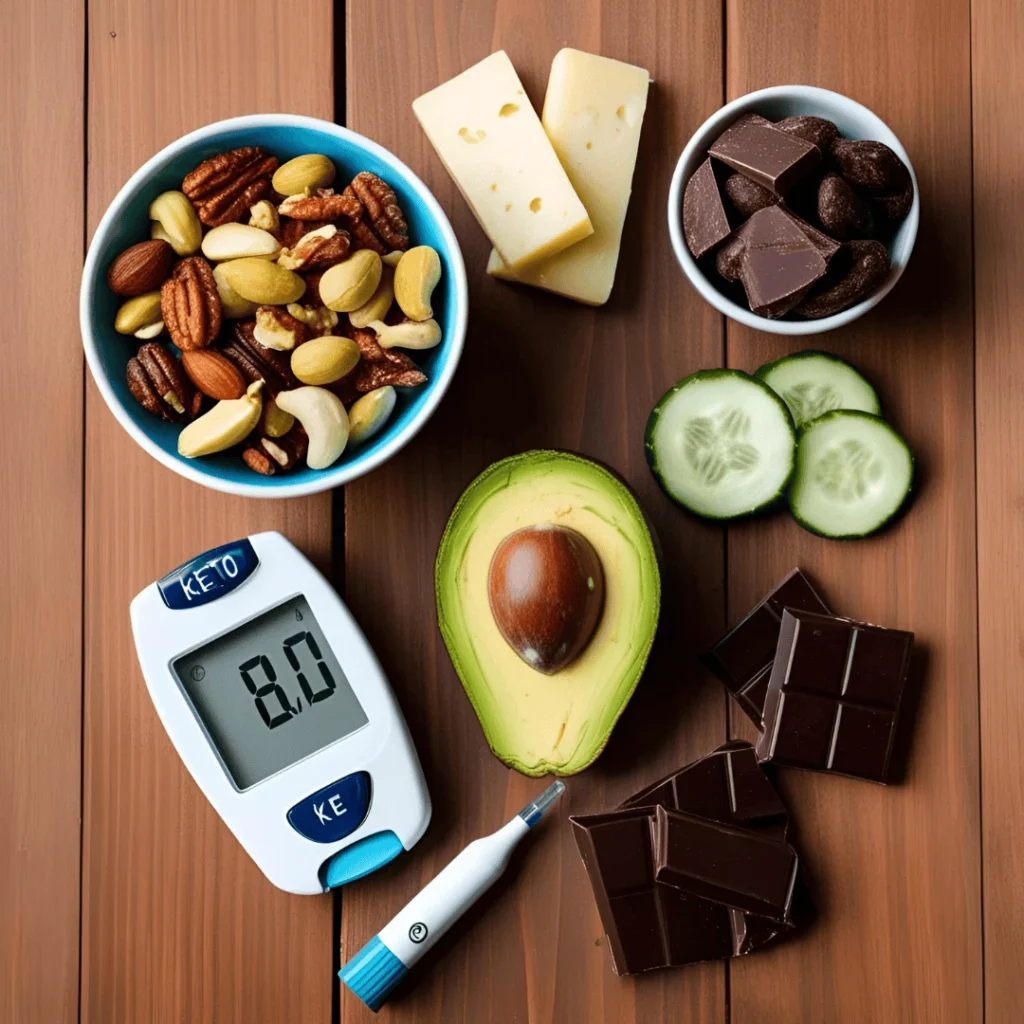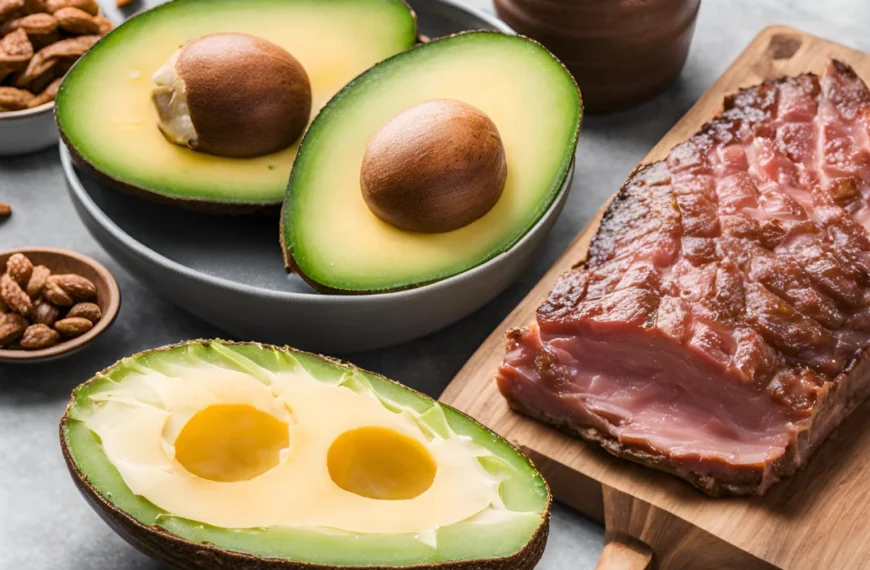Table of Contents
ToggleSummary
When does keto flue hits, The keto flu is a temporary but challenging phase that occurs when transitioning into ketosis, typically hitting within 24 to 72 hours after drastically reducing carbohydrate intake. Symptoms such as fatigue, headaches, nausea, brain fog, and muscle cramps arise due to carb withdrawal, dehydration, and electrolyte imbalances. While these symptoms can last 3 to 7 days, proper hydration, electrolyte replenishment, and gradual carb reduction can ease the transition significantly.
To beat keto flu fast, it is essential to stay hydrated, consume more sodium, potassium, and magnesium, eat healthy fats, and get enough rest. Engaging in light exercise and gradually reducing carbs instead of making sudden dietary shifts can also prevent severe symptoms. Most people recover quickly, but if symptoms persist for more than two weeks, medical advice may be necessary. By understanding when keto flu hits and taking proactive measures, you can ensure a smoother transition into ketosis. For more expert keto guidance, check out our related articles on the Keto Diet, Keto Diet Plan, and 7-Day Keto Meal Plan.
Introduction
The ketogenic diet has gained immense popularity for its potential to promote weight loss, enhance mental clarity, and regulate blood sugar levels. However, transitioning into ketosis comes with an often-unexpected challenge keto flu. This temporary condition can leave you feeling drained, foggy, and even sick, making it essential to understand when keto flu hits and how to alleviate its symptoms quickly.
Keto flu occurs as your body shifts from relying on carbohydrates to burning fat for fuel, leading to temporary side effects. Knowing when does keto flu hit and how to beat it fast can make your keto journey much smoother. In this article, we will dive deep into the causes, symptoms, and proven remedies to help you stay on track.
What is Keto Flu?
Keto flu is a set of symptoms that appear when the body starts adjusting to a ketogenic diet. It happens because your body is shifting from burning glucose (carbs) to burning fat for energy, leading to temporary imbalances in electrolytes and hydration levels.
Why Does Keto Flu Happen?
- Carbohydrate Withdrawal: The sudden reduction in carb intake forces the body to find alternative energy sources.
- Electrolyte Imbalance: As insulin levels drop, the kidneys excrete more sodium and potassium, leading to dehydration.
- Metabolic Adjustment: The body requires time to efficiently utilize ketones for energy, causing temporary fatigue.
When Does Keto Flu Hit?
One of the most common questions among keto beginners is, when does keto flu hit? Generally, it begins within 24 to 72 hours after drastically cutting down on carbohydrates. However, the timeline varies depending on individual metabolism, previous diet, and hydration levels.
Factors Affecting When Keto Flu Hits
- Carb Dependence: Higher previous carb intake may lead to a more intense keto flu.
- Hydration Levels: Dehydration can worsen symptoms.
- Electrolyte Balance: A lack of sodium, potassium, and magnesium can make symptoms more severe.
- Metabolic Flexibility: Those who previously followed a low-carb diet may experience milder symptoms.
Common Symptoms of Keto Flu
When keto flu hits, the symptoms can range from mild to severe. The most common symptoms include:
- Fatigue and Weakness – Due to the sudden shift in energy sources.
- Headaches – Caused by dehydration and electrolyte loss.
- Nausea and Digestive Issues – The body is adjusting to higher fat intake.
- Dizziness and Brain Fog – A temporary reduction in glucose can cause cognitive sluggishness.
- Irritability and Mood Swings – Fluctuating hormones may affect mood.
- Muscle Cramps and Soreness – Due to sodium and potassium loss.
How to Beat Keto Flu Fast
Now that we know when keto flu hits, let’s explore ways to combat it effectively.
1. Stay Hydrated
Dehydration is one of the primary causes of keto flu symptoms. Drink at least 2-3 liters of water daily to keep your body hydrated and flush out toxins.
2. Replenish Electrolytes
Electrolyte imbalances can cause headaches, fatigue, and cramps. Increase your intake of:
- Sodium: Add Himalayan salt to your meals.
- Potassium: Consume avocado, spinach, and nuts.
- Magnesium: Include leafy greens, pumpkin seeds, and dark chocolate.
3. Eat More Healthy Fats
Since fat is your new fuel source, consuming adequate amounts will help speed up adaptation. Include:
- Avocados
- Olive oil
- Coconut oil
- Fatty fish (salmon, mackerel)
4. Get Enough Sleep
Lack of sleep can worsen keto flu symptoms. Aim for 7-9 hours of quality sleep per night.
5. Gradual Carb Reduction
If you’re struggling with keto flu, try reducing carbs gradually instead of eliminating them overnight.
6. Light Exercise
Engage in low-intensity workouts like walking or yoga to improve circulation and reduce fatigue.
How Long Does Keto Flu Last?
The duration of keto flu varies from person to person. Most individuals recover within 3 to 7 days, but some may experience symptoms for up to two weeks.
When to Seek Medical Help?
If symptoms persist beyond two weeks or become severe (persistent vomiting, irregular heartbeat, or extreme weakness), consult a healthcare professional.
FAQs
1. When does keto flu hit most people?
Keto flu typically begins within 24 to 72 hours after starting a low-carb diet.
2. Can I prevent keto flu?
Yes! Staying hydrated, gradually reducing carbs, and replenishing electrolytes can help minimize symptoms.
3. What’s the fastest way to beat keto flu?
Drinking plenty of water, increasing electrolyte intake, and getting sufficient rest can speed up recovery.
4. Is keto flu dangerous?
Keto flu is temporary and not harmful. However, if symptoms are severe or prolonged, seek medical advice.
5. Does everyone experience keto flu?
No, some individuals adapt quickly without noticeable symptoms.
Conclusion
Keto flu can be an uncomfortable hurdle, but with the right knowledge, you can minimize its impact. By understanding when keto flu hits and implementing effective strategies, you can transition into ketosis smoothly. Remember to stay hydrated, nourish your body, and listen to its signals for a successful keto journey.
For more expert keto tips, check out our guides on the Keto Diet, Keto Diet Plan, and 7-Day Keto Meal Plan.












